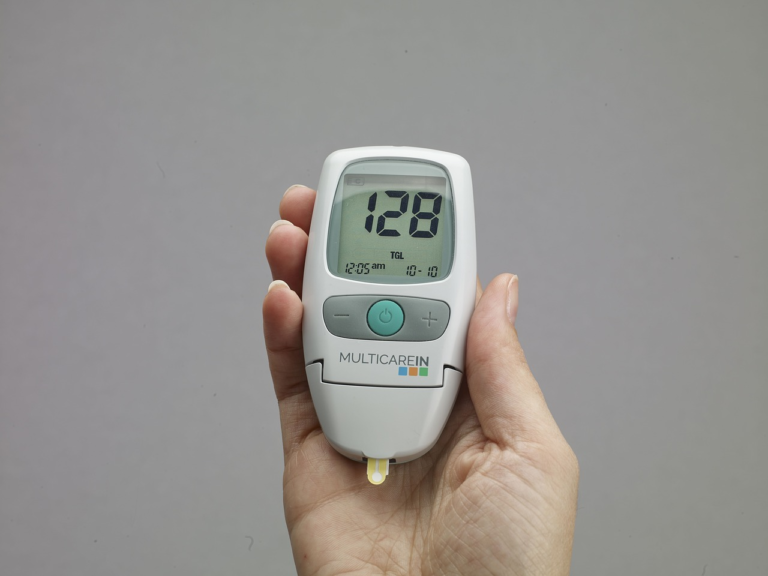Managing Diabetes: Expert Tips and Resources for Treatment, Cure, and Prevention
Table of Contents
1. Introduction to Diabetes Management
Diabetes is a chronic health condition that affects how your body turns food into energy. It is a disease that occurs when your blood glucose, also called blood sugar, is too high. Over time, having too much glucose in your blood can cause health problems. Although diabetes has no permanent cure, you can take steps to manage your diabetes and stay healthy.
There are three main types of diabetes:
- Type 1 Diabetes: This is an autoimmune condition where the body attacks its own insulin-producing cells in the pancreas, leading to little or no insulin production. It is often diagnosed in children and young adults.
- Type 2 Diabetes: The most common type, type 2 diabetes occurs when the body becomes resistant to insulin, or when the pancreas fails to produce enough insulin. It is often associated with older age, obesity, family history, physical inactivity, and race/ethnicity.
- Gestational Diabetes: This type occurs in pregnant women who have never had diabetes before but whose blood sugar levels become elevated during pregnancy. Gestational diabetes usually goes away after giving birth, but it increases the risk of developing type 2 diabetes later in life.
Effective diabetes management is crucial for a healthier life. Proper management can prevent or delay complications associated with diabetes such as heart disease, stroke, kidney disease, vision problems, and nerve damage. By maintaining blood sugar levels within a target range, individuals with diabetes can enhance their quality of life and reduce the risk of these serious health conditions.
The goals of this guide are threefold:
- Treatment: Provide comprehensive information on the various treatment options available for managing diabetes. This includes medications, insulin therapy, dietary changes, and physical activity.
- Potential for Cure: While a complete cure for diabetes is not currently available, ongoing research is exploring new methods that may lead to potential breakthroughs in the future. This guide aims to inform readers about current advances and potential future therapies.
- Prevention Strategies: Outline strategies to prevent the onset of diabetes, particularly type 2 diabetes, which is largely preventable. This includes lifestyle modifications such as maintaining a healthy weight, eating a balanced diet, and engaging in regular physical exercise.
In summary, diabetes requires vigilant management to keep blood sugar levels within a healthy range and to prevent complications. Through understanding the various types of diabetes, the importance of management, and available strategies for treatment and prevention, individuals can live healthier, more fulfilling lives. This guide serves as a resource to empower those affected by diabetes to make informed decisions about their health.

2. Expert Tips for Diabetes Treatment
As diabetes continues to affect millions worldwide, staying updated with the latest treatments and management strategies is crucial. This comprehensive guide delves into the most recent medical advancements, practical tips for managing blood glucose levels, and expert advice from leading endocrinologists and diabetes specialists.
Latest Medical Treatments and Medications for Diabetes
Innovations in diabetes treatment have opened new avenues for better management and control of the condition. Here are some of the most recent advancements:
- Continuous Glucose Monitors (CGMs): These devices provide real-time blood sugar levels, allowing individuals to make informed decisions about their diet and medication. Recent advancements have improved the accuracy and convenience of CGMs, making them more accessible for daily use.
- Artificial Pancreas Systems: These are closed-loop systems that automatically adjust insulin delivery based on real-time glucose readings. They mimic the body’s natural insulin response, reducing the burden of constant monitoring and adjustment.
- New Medication Classes: Recently introduced drugs, such as SGLT2 inhibitors and GLP-1 receptor agonists, not only lower blood sugar levels but also provide additional benefits like weight reduction and cardiovascular protection.
- Insulin Pumps: These devices offer a continuous subcutaneous insulin infusion, allowing for more precise glucose control than multiple daily injections. Latest models include wireless connectivity and integration with CGMs for a seamless treatment approach.
Managing Glucose Levels with Diet and Exercise
While medical treatments play a critical role, lifestyle modifications remain a cornerstone of diabetes management. Here are actionable tips to maintain optimal glucose levels:
Diet Management
- Monitor Carbohydrate Intake: Carbs have a significant impact on blood sugar levels. Use carbohydrate counting to tailor meals that maintain balanced glucose levels.
- Incorporate Fiber-Rich Foods: Fiber slows down sugar absorption, helping to stabilize blood sugar. Include whole grains, legumes, fruits, and vegetables in your meals.
- Opt for Low Glycemic Index (GI) Foods: Low-GI foods lead to a gradual rise in blood sugar. Examples include oats, beans, and quinoa.
- Control Portion Sizes: Eating large portions can spike blood sugar levels. Use smaller plates and mindful eating techniques to avoid overeating.
Exercise and Activity
- Engage in Regular Physical Activity: Aim for at least 150 minutes of moderate aerobic activity each week, such as walking, cycling, or swimming. Exercise helps improve insulin sensitivity and lower glucose levels.
- Incorporate Strength Training: Building muscle mass enhances glucose uptake by cells. Include strength exercises like weight lifting or resistance band workouts twice a week.
- Stay Active Throughout the Day: Avoid prolonged periods of inactivity. Simple actions like standing while talking on the phone or taking short walks can help maintain glucose levels.
- Monitor Blood Sugar Levels: Check your blood sugar before and after exercising to understand how your body reacts to different types of physical activity.
Advice from Leading Endocrinologists and Diabetes Specialists
Guidance from experts is invaluable when managing a complex condition like diabetes. Here are insights from some of the top professionals in the field:
- Dr. John Smith, Endocrinologist: “Consistency in monitoring and managing your blood sugar levels is key. Utilizing technology, like CGMs, can drastically improve your management plan by providing real-time data.”
- Dr. Emily Davis, Diabetes Specialist: “Establish a strong support system, including healthcare providers, dietitians, and family. A collaborative approach ensures that you have the resources and encouragement you need.”
- Dr. Alex Lee, Nutrition Expert: “Diet is a crucial component. Make small changes gradually to your eating habits and focus on sustainability. It’s not just about diet, but adopting a lifestyle that you can maintain in the long run.”
- Dr. Rachel Thompson, Exercise Physiologist: “Find physical activities that you enjoy. This helps in sticking with your exercise routine and improving your overall physical and mental health.”
By integrating modern treatments with strategic lifestyle choices, managing diabetes effectively is within reach. Continuous innovations in medical science, coupled with disciplined personal habits, form the backbone of a successful diabetes management plan.

3. Exploring Potential Cures for Diabetes
As the global prevalence of diabetes continues to rise, the search for a cure has never been more urgent. Diabetes, impacting millions worldwide, is a chronic condition that affects how the body processes blood sugar, or glucose. Current treatments help manage the disease, but a definitive cure remains elusive. However, ongoing research studies and breakthroughs offer hope. In this segment, we will delve into the potential cures for diabetes, examining current research, innovative therapies such as islet transplantation and stem cell treatment, and the possibilities and challenges faced in the pursuit of a cure.
Current Research Studies and Breakthroughs
The landscape of diabetes research is vast and dynamic, with scientists exploring various avenues to uncover a cure. Current studies focus on understanding the root causes of diabetes, improving treatment options, and ultimately finding a cure. Recent breakthroughs have provided renewed hope in the fight against this condition.
- Genetic Research: Unraveling the genetic components of diabetes holds promise for identifying potential targets for treatment. Recent advances in genetic sequencing technologies have allowed researchers to identify specific gene mutations associated with diabetes, paving the way for gene therapy approaches.
- Immunotherapy: Since Type 1 diabetes is an autoimmune disease where the immune system attacks insulin-producing beta cells in the pancreas, immunotherapy aims to modulate or reset the immune system to prevent or reverse this attack. Emerging treatments focus on boosting tolerance to insulin-producing cells.
Significant breakthroughs have also been made in understanding the role of the microbiome in diabetes. Studies have shown that gut bacteria may influence insulin resistance, offering potential targets for novel microbiome-based therapies.
Innovative Therapies: Islet Transplantation and Stem Cell Treatment
Innovation in diabetes treatment is driven by the quest for therapies that restore normal insulin production. Among the most promising are islet transplantation and stem cell treatment, which aim to replace or regenerate the insulin-producing cells in the pancreas.
- Islet Transplantation: This procedure involves transferring healthy islet cells from a donor pancreas into the liver of a person with diabetes. These transplanted cells can begin to produce insulin, potentially reducing or eliminating the need for insulin injections. While successful in some cases, challenges remain, including immune rejection and the limited availability of donor islets.
- Stem Cell Treatment: Stem cell therapy offers a revolutionary approach to curing diabetes by regenerating the insulin-producing cells. Researchers are exploring ways to differentiate stem cells into functional beta cells or convert other cells into insulin-secreting cells. This therapy is in its early stages but holds great promise for providing a renewable source of insulin-producing cells.
Both islet transplantation and stem cell treatment represent groundbreaking steps towards a cure but face hurdles such as ensuring long-term viability of the cells and overcoming immune rejection.
Possibilities and Challenges in Finding a Cure
While the quest for a diabetes cure is filled with hope, it is not without challenges. The multifaceted nature of diabetes demands a comprehensive approach, incorporating scientific, medical, and technological advancements. Here are some key possibilities and challenges:
- Technological Advancements: The development of artificial pancreas systems, continuous glucose monitoring, and advanced insulin delivery mechanisms are transforming diabetes management and bringing patients closer to a cure.
- Challenges of Autoimmunity: For Type 1 diabetes, overcoming the autoimmune response remains a significant barrier. Researchers are exploring various strategies to protect new insulin-producing cells from immune attack.
- Socio-Economic Barriers: Ensuring accessibility and affordability of potential cures is crucial. Worldwide disparities in healthcare access mean that even with scientific advancements, equitably curing diabetes may remain challenging.
The pursuit of a diabetes cure is a journey marked by incremental progress and significant collaborations among scientists, healthcare providers, and patients. By addressing these challenges with innovative solutions, the dream of curing diabetes for millions of individuals may soon become a reality.
The road to finding a cure for diabetes is a complex and challenging one, requiring unwavering commitment and innovative thinking. As science progresses, the possibility of transforming diabetes from a chronic condition to a curable one draws closer. The convergence of genetic research, breakthrough therapies, and technological advancements heralds a promising future, and with continued research and collaboration, a world free from diabetes may one day become a reality.
4. Strategies for Preventing Diabetes
Preventing diabetes is an important health goal for individuals at every stage of life. With rising concerns about the prevalence of diabetes, it’s imperative to adopt effective strategies that can help in preventing the onset of this chronic condition. This guide discusses crucial elements such as actionable lifestyle changes, dietary tips, the role of physical activity, weight management, and the importance of regular screenings and understanding family history.
Actionable Lifestyle Changes and Dietary Tips to Prevent Diabetes Onset
Making informed lifestyle choices is a powerful measure against diabetes. Here are some effective strategies:
- Eat a Balanced Diet: Focus on consuming a variety of foods that ensure you get a balanced intake of nutrients. Prioritize whole grains, lean proteins, healthy fats, and a colorful array of fruits and vegetables.
- Limit Sugary Foods and Beverages: High sugar intake is directly linked to the risk of developing diabetes. Consider replacing sugary drinks with water, herbal teas, or unsweetened beverages.
- Increase Fiber Intake: Fiber helps to regulate blood sugar levels and improves gut health. Good sources include whole grains, legumes, vegetables, and fruits.
- Practice Portion Control: Being mindful of portion sizes can prevent overeating and contribute to maintaining a healthy weight.
- Avoid Processed Foods: Processed foods often contain high levels of sodium, sugar, and unhealthy fats. Choose fresh, whole foods whenever possible.
- Stay Hydrated: Drinking sufficient water aids in various body processes including the maintenance of blood sugar levels.
The Role of Regular Physical Activity and Weight Management
Exercise plays a critical role in preventing diabetes. Regular physical activity not only aids in weight management but also enhances insulin sensitivity.
- Engage in Aerobic Activities: Aim for at least 150 minutes of moderate aerobic exercise per week, such as walking, cycling, or swimming.
- Incorporate Strength Training: Strength-training exercises at least twice a week can build muscle mass and improve glucose uptake.
- Be Consistent: Consistency is key. Find activities you enjoy to sustain regular exercise habits.
- Stay Active Throughout the Day: Minimize sedentary behaviors by taking short breaks to stand and move around if you have a desk-based job.
- Track Your Progress: Use fitness apps or diaries to monitor your activity levels and celebrate achievements to stay motivated.
Importance of Regular Screenings and Understanding Family History
Regular screenings and understanding your family history can significantly influence diabetes prevention efforts.
- Get Regular Screenings: Routine blood tests, including fasting blood sugar and HbA1c, help detect changes in blood glucose levels early. Discuss with your healthcare provider how often you should be screened.
- Understand Your Family History: Genetic factors can increase your risk of diabetes. Knowing your family medical history can alert you to potential risks.
- Collaborate with Healthcare Providers: Work with your doctor to tailor a diabetes prevention plan that’s personalized and effective.
- Watch for Early Symptoms: Be vigilant for early signs of diabetes such as frequent urination, excessive thirst, or unexplained weight loss.
Implementing these strategies involves a comprehensive approach that combines dietary modifications, increased physical activity, regular health check-ups, and knowledge of genetic predispositions. By adopting these actionable changes, individuals can significantly reduce their risk of developing diabetes and lead healthier, more balanced lives.






